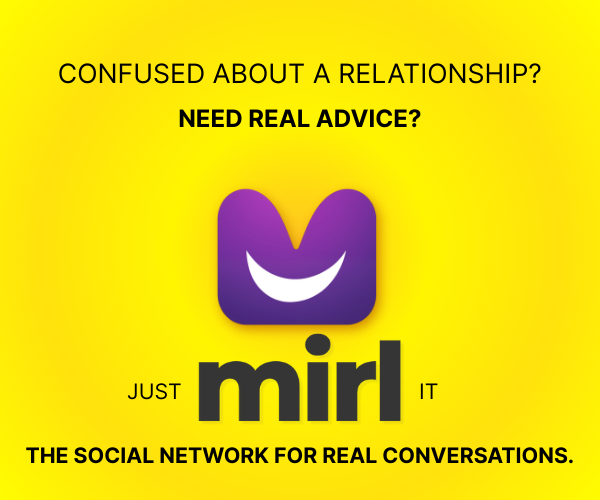25 Types, Ways & Tips to Set Boundaries with Friends Without Insulting Them

Friendships are great, so long as your boundaries are respected. But if they’re not, then you need to learn how to set boundaries with your friends.
Friendships are an amazing addition to your life. Having someone there to talk to, to support you, and to be there, is priceless, especially if you’ve learned how to set boundaries with friends. But not all friendships are so fulfilling.
Some friends can be a lot to handle. Even though you have history and can’t picture your life without them, friends can exhaust you.
If they don’t respect your boundaries, they can leave you physically, emotionally, and mentally drained. They can affect your overall well-being and detrimentally affect your self-esteem.
If you think that your friend is overstepping your boundaries, or that a friendship is leaving you more miserable than happy, you might need to learn how to set boundaries with friends.
[Read: How to set personal boundaries and guide others to respect it]
What does it mean to set boundaries in a friendship?
In short, setting boundaries in a friendship basically means that you can make your friendships healthy and productive.
They’re like blocks that prevent one or both of you from stepping on each other’s toes, saying things that the other doesn’t like, or just overstepping your mark and making your friend uncomfortable.
It sounds bad, but just like any other relationship, friendships require boundaries to be healthy. Having a friend who is too involved with your life can feel suffocating. An overly needy friend can feel exhausting. And having a friend who is always there for you sounds great but can be way too much.
We all need our space, privacy, and sanity. But setting boundaries with friends that are overbearing can be intimidating. You don’t want to hurt their feelings or mess up your friendship, but you must set boundaries to keep them in your life.
Why friendships need boundaries
Some people may believe that friendships are relationships in life that don’t need work. You always hear about romantic and familial relationships needing work, but friendships may need the most work of all sometimes.
Friendships don’t just survive and thrive on their own. They need effort, communication, and honesty too.
There are so many expectations with friends, but they are often nonverbal. You expect your friends to come to your parties, you expect them to be there for a break-up, and you expect them to celebrate with you or mourn with you. [Read: The good and bad kind of friends of convenience]
But, what about other priorities? Should your friends expect you to put them before your partner, family, or children? Should they expect you to skip work to take them out after a bad date? Where is the line?
Often there isn’t a boundary in place until one of these situations comes up. You may have never told your friends what you’re willing to do and what you aren’t. Without those boundaries, things go haywire fast!
Think about your last roommate. If you don’t set boundaries or expectations for chores, visitors, and noise, how would you cohabitate happily? The same goes for friendships.
If you assume you and your friends are on the same page when you’re not, it can lead to resentment, miscommunication, and even end friendships. All that is required is some open and honest communication. It seems silly not to set boundaries with friends, right? [Read: What makes someone a clingy friend and how to help them change]
Types of boundaries
Before we get into how to set boundaries with friends, it will do you good if we first outline the different types of boundaries you should set within your friendships. Knowing the core five types of boundaries will help you identify where exactly you need to set boundaries.
1. Time boundaries
Your time is important! However, if your friend is always late, calling you at times you’ve said you’re going to be busy, or canceling plans on short notice, you can easily feel like your time isn’t being respected.
2. Physical boundaries
Some people are huggers, some aren’t, and that’s okay! It’s important that those huggers respect their non-hugging friends.
And just in general, friends should respect the levels of physical touch they’re comfortable with.
3. Emotional boundaries
Depending on how much you’re dealing with or what you’ve experienced, your emotional boundaries are likely to fluctuate and change over the course of your life.
Your friends should respect that and avoid bringing up topics that they know could upset you or demand too much of you when they’re aware you’re tied up in something such as a stressful period at work or family troubles.
4. Intellectual boundaries
Given how different we all are, it’s unlikely that you have all the same opinions and beliefs as your friends. These differences make us unique, not to mention our friendships more interesting.
But if your friends don’t respect your different beliefs, they’re not respecting your intellectual boundaries.
5. Material boundaries
Sharing things with your friends is okay. In fact, it can be really fun to share a closet with your friends. But no matter how many material things you share, they should still respect your belongings.
That means being careful not to break your things, borrowing your money and paying you back, and not taking anything of yours without asking.
How to set boundaries with friends
Whether new friends or old, knowing how to set boundaries with friends can seem jarring. How do you bring it up?
You don’t want to take your friend off guard or insult them, but you need boundaries. They probably need boundaries too, and haven’t been able to bring it up with you either. And if you keep avoiding this conversation, it can lead to an even worse effect.
So, how do you have this conversation?
1. Talk to your friend
Maybe your friend isn’t even aware that their behavior is making you feel uncomfortable. Just sitting down with your friend and telling them that they’re not respecting your boundaries might make the situation better. [Read: What makes someone a friend? How to enrich your life and build real friendships]
After all, no one is a mind reader. How is your friend meant to know that you’re unhappy if you don’t tell them?
2. Express your value of the friendship
When having difficult conversations with anyone, they can easily come across as an attack on the person you’re talking to. So, to avoid an unnecessary argument or upsetting your friend, remind them of how much you value them and their friendship.
You’re talking to your friend so that you can fight against a problem together, not fight each other.
3. Be definitive/explicit
Setting boundaries is a personal thing. After all, not everyone will have the exact boundaries. So, when you’re outlining your boundaries, you need to be firm about them.
You shouldn’t bend and make them flexible around your friend and their best wishes, your friend should adjust their behavior around your boundaries.
4. But also be willing to compromise
Nothing will be done if you and your friend approach this vital conversation like two bulls butting heads. While you’re talking about your boundaries, you need to keep yourself open to compromise.
This doesn’t mean you should ignore the above point and change your boundaries to suit your friends. Instead, you should both work together to find a middle ground.
Say, for instance, your friend is quite needy and wants to spend a lot of time with you, but you need your alone time.
To make both of you happy, maybe you can agree for your friend not to drop by your house every day, and instead, you can have a daily phone call. That way, both of you are happy while still respecting both of your boundaries and needs.
5. Use “I” statements
A key tip to keep in mind when setting boundaries with friends, or just when having any difficult conversation, is to focus on using “I” statements rather than “you” statements.
For instance, if you tell your friend that “I feel ignored,” you’re expressing how you feel in a way that they will *hopefully* listen to and understand.
However, if you say “you make me feel ignored,” you’re assigning blame on to them, and they’re more likely to meet you with defensiveness instead of compassionate understanding. [Read: How to have a difficult conversation without losing your nerve]
6. Nip the problematic behavior in the bud ASAP
If you just let a ‘friend’ walk all over you or speak to you disrespectfully for some time before you stand your ground and ask them to stop, they’re going to be confused. “Why were they okay with it at first but unhappy with it now?”
They could very well ignore your pleas and continue with their behavior, because if it was acceptable before, then surely it’s acceptable now.
If you raise your concerns about their behavior as soon as you notice it, they’ll know that it’s really not okay.
7. Offer alternatives
The same as being willing to compromise, you have to be willing to offer alternatives.
For example, maybe you’ve decided to stop drinking, but your friend isn’t supportive of your decision because they want to keep going out with you every weekend.
Instead of going to a bar and drinking alcohol, you could suggest going to a coffee shop and catching up over a hot cup of coffee every weekend.
When you’re setting boundaries with your friend that, to them, is coming out of the blue, you might want to have a couple of alternatives to offer and help them to respect your boundaries.
8. If you’re struggling to set boundaries, get help
Some people are unable to set boundaries. This can be due to many different reasons, such as being a people pleaser, being afraid of conflict, having low self-esteem, or having a low sense of self.
Regardless of why you struggle to set and maintain boundaries with the people in your life, there’s nothing wrong with seeking help from a professional.
Talking to a therapist to discover the root of your boundary problem is not a weakness but rather a massive sign of strength.
While setting these boundaries, remember to make the boundaries a two-way street. Share what you expect of them but also what you expect from yourself. Ask what they can expect from you. Make sure your friend knows you want to be on the same page to avoid misunderstandings.
They may get upset, but that’s okay. Let them be upset. If they didn’t expect this and thought everything was great, they could be surprised.
Let them process what you’re saying before getting into details. And don’t talk down to them. This is your friend. They deserve respect just as you deserve privacy. Boundaries in a friendship will benefit everyone.
What boundaries should you set with friends?
Depending on your friendship, the boundaries that you set with friends may vary. Some may be about calling after a certain time when it isn’t urgent, others could be about popping by, or guilting you into something.
Just like relationships, friendships can become codependent and dysfunctional. They can take more than they give and cause more harm than good.
But, with the proper boundaries that same friendship could flourish. If you know a friendship in your life needs to change but aren’t sure how, here are some instances when you would need to set boundaries.
[Read: Why your codependent friendship is more unhealthy than you think]
1. Your friendship feels one-sided
A friendship should be mutual. You should both give and take. Of course, people go through bad times and may need more support. It should be given back when the time comes. It isn’t about owing each other but about both feeling like you are giving and receiving support.
2. You’re feeling overwhelmed
Good and healthy relationships should leave you feeling fulfilled. You should walk away from a chat or a hangout with your friend feeling happier, lighter, and rejuvenated. However, if you’re walking away from your friend feeling drained, overwhelmed, or just unhappy.
Maybe your friend is too demanding of your time or emotional involvement, or maybe they just talk talk talk and ignore what you have to say. Either way, they’re ignoring your emotional needs, and when our friendships don’t meet our emotional needs, they can leave us feeling overwhelmed.
If you’re feeling overwhelmed, you might just need to set a temporary boundary that you can’t really be an involved friend while you deal with a particularly stressful patch in life. But if you’re feeling overwhelmed as a direct consequence of their actions, you will need to set a permanent boundary.
3. Your friend is too needy or you feel like you’re always on call
Sure, it’s great talking to your friends! They’re good fun, and talking to them can make you feel good. But everyone has a life to live, and they can’t talk to their friends all the time.
If your friend doesn’t respect your job, your relationships outside of that friendship, and your time, then they don’t respect you.
If respect is a boundary lacking in your friendship, then you need to set this boundary now. Respecting each other’s time, energy, and effort is so important to maintaining a quality friendship. [Read: 15 signs you have shitty friends and it’s time to get some new ones]
4. They tease you incessantly
It’s true that friendships usually involve some form of teasing. Just a bit of witty banter, friends will often call each other funny names, pick fun at them for making a minor mistake, or bring up an embarrassing memory in jest.
However, it doesn’t matter if they aren’t teasing you out of malice – if you’re unhappy or uncomfortable with their teasing, they should respect you enough to stop.
If they try to tell you that you’re too sensitive or ignore your requests to stop teasing you, they are not a friend you should keep around.
5. Your friend is in your business
It’s assumed friends tell each other everything, but it just isn’t the case. True friends respect each other’s privacy and comfort zones.
Your friend may feel great telling you about their sex life, but if that is private and personal for you, they shouldn’t make you feel guilty for keeping your lips sealed.
Friends share and support each other, but they don’t need to share every detail about their lives.
6. Your availability or lifestyle has changed
Even if you once lived with a friend, if they invite themselves into your current place where you live alone or with a partner, it probably feels over the line to you.
To them, it may seem normal and comfortable. This must be discussed. If your friend is invading your space, you will eventually be fed up to the point that the friendship sours.
If you can talk it out when it first starts bothering you, the friendship can actually grow from that honesty. [Read: How to say no – Stop pleasing people and feel awesome instead]
7. They don’t respect your political or religious differences
Whether you differ in politics, religion, or anything else, it is important to appreciate those differences and not judge each other for them. Maybe your friend is more educated than you, but you shouldn’t view them as stuck up just as they shouldn’t view you as simple-minded.
These differences are what make a friendship so deep and meaningful. They shouldn’t be a means to judge or insult one another.
Friends can happily live different lives and share their time together without it coming between them. These differences enhance your friendship and perspective, not damage it.
8. You both have different communication styles
To a friend who talks strictly over text, a facetime request from a friend who prefers talking over video can send their stomach sinking to their feet.
If you aren’t comfortable communicating in a particular way, you need to let your friend know. They will understand, and they won’t force you to do anything you don’t want to do. But there are only so many facetime calls you can ignore before your friend gets hurt thinking that you don’t want to talk to them.
9. You don’t feel comfortable sharing your opinions
In every friendship, you will eventually have debates. They can be a fun way to express your difference in opinions.
However, good friends enter debates with respect. Without respect, then debates can lead to bullying, belittlement, and patronizing behavior. With enough of this, you might feel uncomfortable sharing an opinion that you know will be different from theirs.
What to do if your boundaries aren’t respected
As frustrating as it is, sometimes people don’t listen when you try to set boundaries. Whether they simply forget or they’re too stubborn to listen to feedback and change, it can make you feel helpless.
But don’t worry, if your friend isn’t respecting the boundaries that you set, there are still things that you can do.
1. Outline consequences
If you’ve tried setting boundaries and they haven’t listened, you might need to provide an incentive for them to listen.
For instance, if they call you after a time you’ve said you don’t want to be called, don’t pick up. If they tend to borrow your items and either break them or forget to return them, don’t lend them your belongings.
Maybe they didn’t know how serious you were when you first set your boundaries, so when they ignore what you said, stand up for yourself and let them know you want the respect you deserve.
2. Avoid situations that might cause conflict
In the case of emotional or intellectual boundaries not being met, your friendship might have a better chance of lasting if you avoid situations or topics that you know might spark disagreement.
After all, you don’t have to talk about everything with your friend. It’s totally okay and normal if there are areas you just don’t touch with your friend.
3. Consider moving on from the friendship
If you’ve tried everything that you can think of to set boundaries and make this friendship good again and it’s just not working, it might be time to cut your losses.
We know that this is hard to hear, but if this friendship isn’t working for you, then it’s time to find new friends who will treat you how you deserve and make you happy, not uncomfortable.
[Read: How to set boundaries in your life for a happier, fuller life]
It can be scary to learn how to set boundaries with friends, but in the long run, it will only bring you closer together. Start with a conversation, and set your friendship boundaries for good.



















